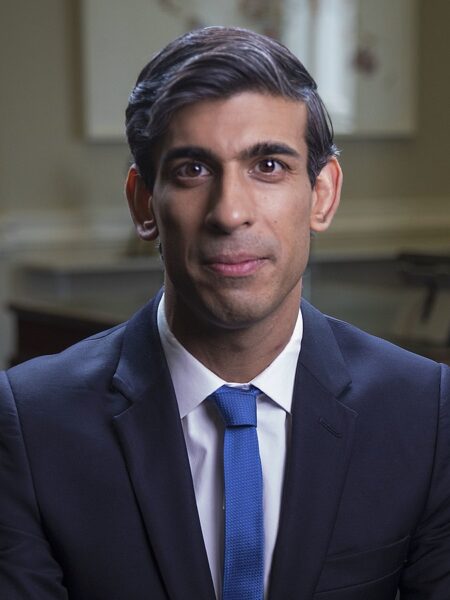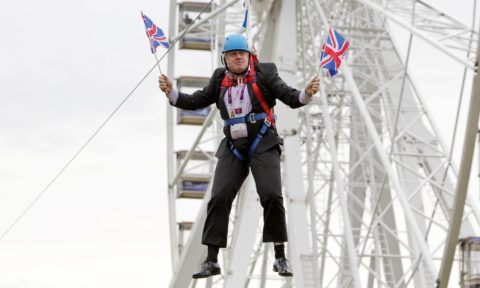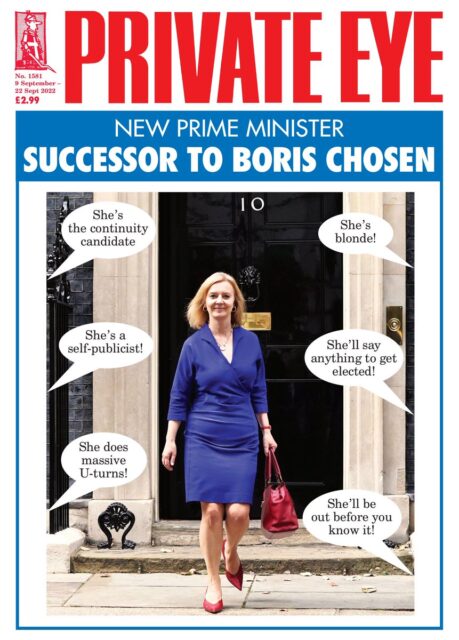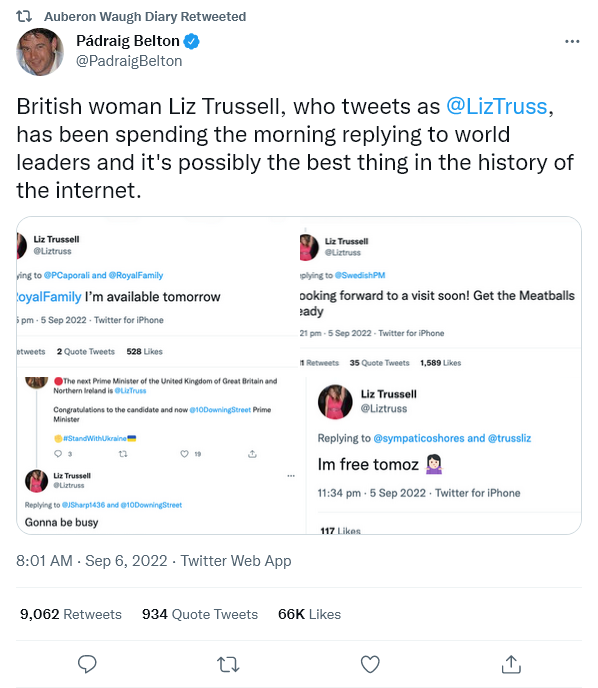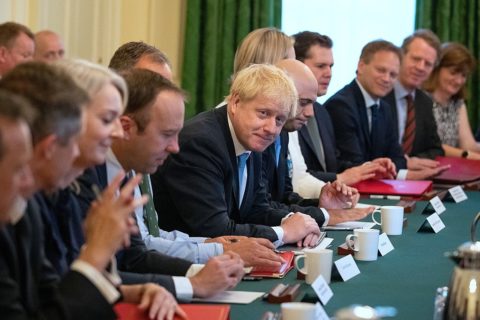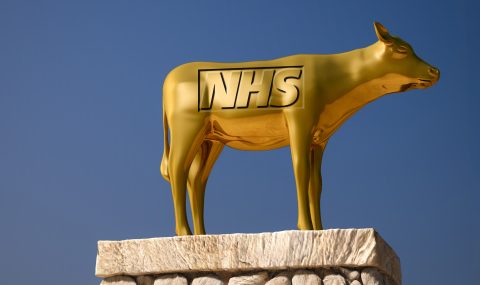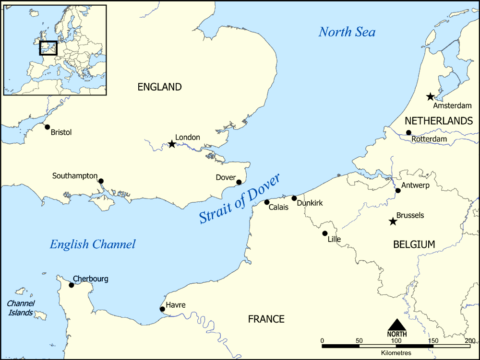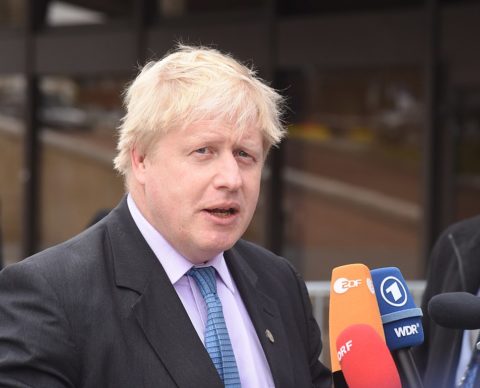I don’t know how the oddsmakers rate the new PM’s chances, but there’s bound to be money made and lost on how long he sticks around. In The Line, Andrew MacDougall wishes Rishi Sunak good luck in his new post:
It says something about the current dysfunction in British politics that the elevation of a third prime minister in a matter of just two months — without a single vote cast, by anyone — is seen as a relief. So all hail the new PM Rishi Sunak, a.k.a. the man who lost to Liz Truss eight weeks ago, as he takes the wheel of this drunken nation.
Sunak won the leadership of the Conservative Party — and through it, the premiership of the country — in the short and sharp race triggered by the spectacular end of the Trussterfuck all of (checks notes) four days ago. With the declared support of nearly 200 of his Parliamentary colleagues, Sunak was able to see off challenges from former prime minister Boris Johnson and current House Leader Penny Mordaunt. Both Mordaunt and Johnson declined to seek a vote by the party membership, prioritizing “party unity” instead.
It will now be up to the 42-year old Sunak, an MP for only seven years, to deliver that party unity. And good luck, as they say, with that. Because the Tories are now riven into warring factions which appear to have no more in common with each other than Jagmeet Singh does with success.
Yeah, it’s that bad.
A good first step for Sunak would be to not repeat the errors of the Truss … era? When you’re in a hole, stop digging, etc. Thankfully, Sunak already has credibility here, having spent the summer telling everyone that Truss’s economic policies would be disastrous. The former chancellor of the Exchequer is, thank Christ, well acquainted with economic reality and is expected to continue the new course set out by Jeremy Hunt, the current chancellor, who has spent his time erasing all of the dick-and-ball doodles Truss scribbled onto the economy. This will surely please the international bond markets, who are the actual rulers of the United Kingdom. It will also please mortgage holders, whose payments are now expected to go up less than during Trussonomics.
But it won’t please everyone.
Robert Hutton in The Critic, for one, welcomes the new robot PM:
The morning had been hugely enjoyable, hours of watching Tory MPs rushing to endorse Rishi Sunak while there was still time. Boris Johnson had suddenly disappeared from view, claiming that he could have won, easily, but had decided not to try. Penny Mordaunt tried her best, and claims to have come within touching distance of the 100-nomination threshold, but, just before Sir Graham Brady was going to announce the result, she issued a statement saying that she hadn’t made it. It was, of course, significantly more gracious than Johnson’s. For all the claims that his time on holiday has made him a more thoughtful and humble figure, his Sunday evening statement suggests he is as much of a petulant man-child as he ever was.
And so to the desk-banging. In fairness, the appointment of Rishi Sunak as leader and prime minister-in-waiting was, for a lot of Tory MPs, an unexpected and huge relief. People who six long weeks ago thought they’d never see the inside of a ministerial car again now glimpse a future bright with possibility, at least as far as they personally are concerned.
[…]
The oddity to the day was that we hadn’t heard from our incoming prime minister. In fact, he didn’t seem to have spoken a word in public since the start of September. Finally he popped up, and we worked out why they’d been keeping him away from the cameras.
It was a brief statement, throughout which he stared at a point just off camera, giving the impression to the viewer that he was looking over your left shoulder, hoping to catch the eye of someone more interesting who was standing behind you.
He opened by paying tribute to Liz Truss “who has led with dignity and grace through a time of great change”. Or, as the rest of us call it, “September”. His delivery was awkward, as though he had read about public speaking in a book, with frequent random pauses. “I am,” he said. “Humbled. And honoured. To have the support of my parliamentary colleagues. And to be elected as leader. Of the Conservative. And Unionist Party!”
Sebastian Millbank, on the other hand, sees Sunak as heralding the end of British sovereignty:
Sunak will be praised, despite being arguably the most privileged man in British politics, as being a triumph for diversity and social mobility, Britain’s first ethnic minority Prime Minister. But he’s also our first Californian Prime Minister — a man who believes heart and soul in the Silicon Valley “Californian ideology“, and boasts of his time in Stanford as a formative experience that gave him a “bigger, more dynamic approach to change”.
In choosing Rishi Sunak in a panicked attempt to retain power and calm the markets, Tory MPs have signed away what is left of British sovereignty over our own affairs. You will hear claims that “this is how the British system works”, that in a parliamentary democracy he need only win the confidence of parliament, and does not need to go to the country.
This is sheer and utter nonsense. The Conservative majority was elected, in its current form, on the basis of the 2019 manifesto, with its promises to strengthen the public sector, heal regional inequality, and reclaim sovereignty over our borders, law and finances. If Sunak and his party no longer intend to honour those commitments, they must win a fresh mandate in a general election.

